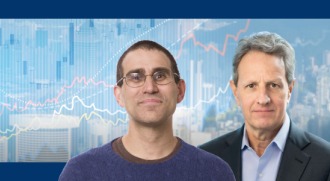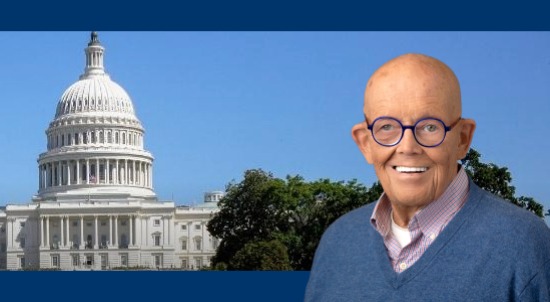
Description
This course is relatively short and proposes a simple concept: we need to incorporate the contagion of narratives into our economic theory. You can think of narratives as stories that shape public beliefs, which in turn influence our decision-making. Understanding how people arrived at certain decisions in the past can aid our understanding of the economy today and improve our forecasts of the future.
Popular thinking heavily influences our answers to questions such as how much to invest, how much to spend or save, whether to go to college or take a certain job, and many more. Narrative economics is the study of the viral spread of popular narratives that affect economic behavior. I believe incorporating these ideas into our research must be done both to improve our ability to anticipate and prepare for economic events and help us structure economic institutions and policy. Until we better incorporate it into our methods of analysis and forecasting, we remain blind to a very real, very palpable, very important mechanism for economic change. Even in the dawning age of the Internet and artificial intelligence, so long as people remain ultimately in control, human narratives will matter. Maybe they will especially matter as the new technology exploits human weaknesses and creates new venues for narrative contagion. If we do not understand the epidemics of popular narratives, we cannot fully understand changes in the economy and in economic behavior.
The course is broken into 4 modules:
Part I introduces basic concepts and demonstrates how popular stories change over time to affect economic outcomes, including recessions, depressions and inequality as well as effective inspiration and growth.. These stories can be observed from diverse sources such as politics, the media, or even popular songs.
Part II seeks to answer why some stories go viral, while others are quickly forgotten, by defining our narrative theory more firmly. This module enumerates and explores a list of seven propositions to help discipline any analysis of economic narratives.
Part III examines nine perennial narratives that have proved their ability to influence important economic decisions. They include narratives regarding artificial intelligence, stock market bubbles, and job insecurity.
Part IV looks to the future and highlights the opportunities for consilience in Narrative Economics. We share some thoughts about where narratives are taking us at this point in history and what kind of future research could improve our understanding of them.
This course offers only the beginnings of a new idea and a few suggestions for how it could be used by economists and financial professionals. The tone is not prescriptive or authoritative, as perhaps my Coursera course, Financial Markets, is in places. It represents the beginning of the journey (epidemic). This course is my way of floating the “germ” of this idea out into the broader community of not only professionals but of anyone who is interested in discovering how and why things become “important” to us as a society. I hope some of you will become infected by this idea, mutate it, spread it, and advance it. The beginning of the journey is the easy part. The challenge will come in taking these concepts to the next level. We have the tools to incorporate narratives into our research and the moral obligation to act; only the work remains.
Course Takeaways
- How and why certain stories go viral.
- How viral narratives shape public beliefs and influence our economic decision making.
- Learn to reapply research and insights from seemingly unrelated field to strengthen your economic thinking
Meet the Instructors
 Robert J. Shiller is Sterling Professor of Economics, Department of Economics and Cowles Foundation for Research in Economics, Yale University, and Professor of Finance and Fellow at the International Center for Finance, Yale School of Management. He received his B.A. from the University of Michigan in 1967 and his Ph.D. in economics from the Massachusetts Institute of Technology in 1972. He has written on financial markets, financial innovation, behavioral economics, macroeconomics, real estate, statistical methods, and on public attitudes, opinions, and moral judgments regarding markets.
Robert J. Shiller is Sterling Professor of Economics, Department of Economics and Cowles Foundation for Research in Economics, Yale University, and Professor of Finance and Fellow at the International Center for Finance, Yale School of Management. He received his B.A. from the University of Michigan in 1967 and his Ph.D. in economics from the Massachusetts Institute of Technology in 1972. He has written on financial markets, financial innovation, behavioral economics, macroeconomics, real estate, statistical methods, and on public attitudes, opinions, and moral judgments regarding markets.



